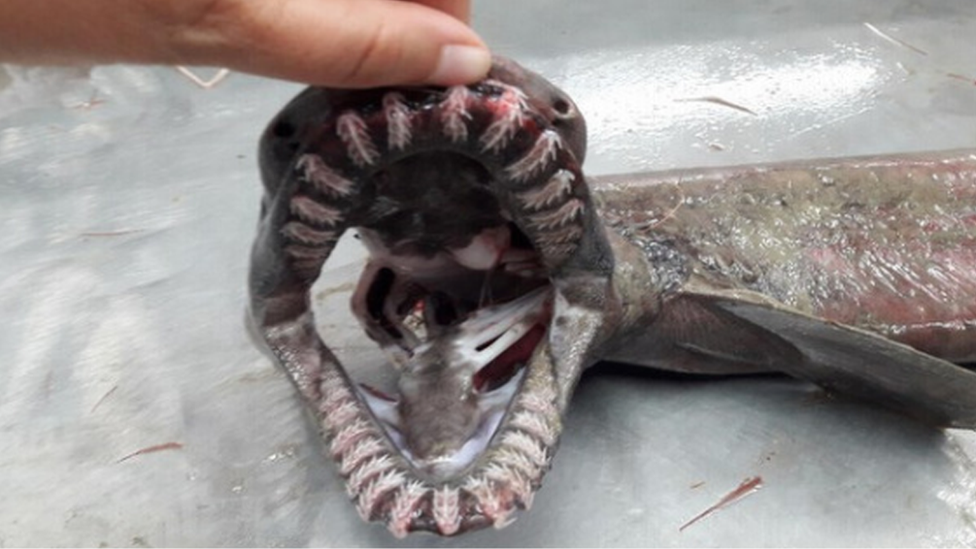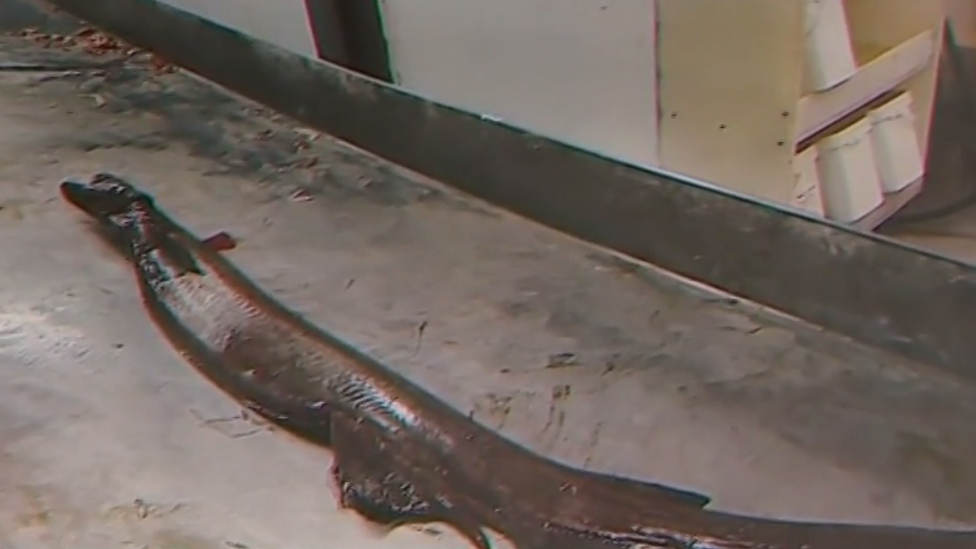Portuguese trawler nets 'prehistoric shark'
- Published

Nasty big pointy teeth
Portuguese scientists have captured a "shark from the age of the dinosaurs" off the Algarve coast.
Researchers caught the rare frilled shark aboard a trawler, where they were working on a European Union project to "minimise unwanted catches in commercial fishing", Sic Noticias TV, external reports.
The scientists from the country's Institute for the Sea and Atmosphere dubbed the shark a "living fossil, external" because remains have been dated back 80 million years, making it one of very few species of such antiquity still around today.
The Institute said the male fish measured 1.5 metres (5ft) in length and was caught at a depth of 700 metres (2,300 ft) in waters off the resort of Portimao.
The shark, which has a long, slim, snake-like body, is "little known in terms of its biology or environment", according to the scientists, because it lives at great depths in the Atlantic and off the coasts of Australia, New Zealand and Japan.
It is rarely caught, and even then examples do not often make it to research laboratories. There is also little footage of the shark in its natural habitat.
Professor Margarida Castro of the University of the Algarve told Sic Noticias that the shark gets its name from the frilled arrangement of its 300 teeth, "which allows it to trap squid, fish and other sharks in sudden lunges".
The reporter dubbed it a "monster of the deep", and it is true that Samuel Garman, the first scientist to study the frilled shark, thought its snake-like movements may have inspired sailors' stories of sea serpents, external.

Inspiration for sea serpents?
Reporting by Martin Morgan
Next story: Russian scientists take aim at paranormal TV shows
Use #NewsfromElsewhere to stay up-to-date with our reports via Twitter, external.